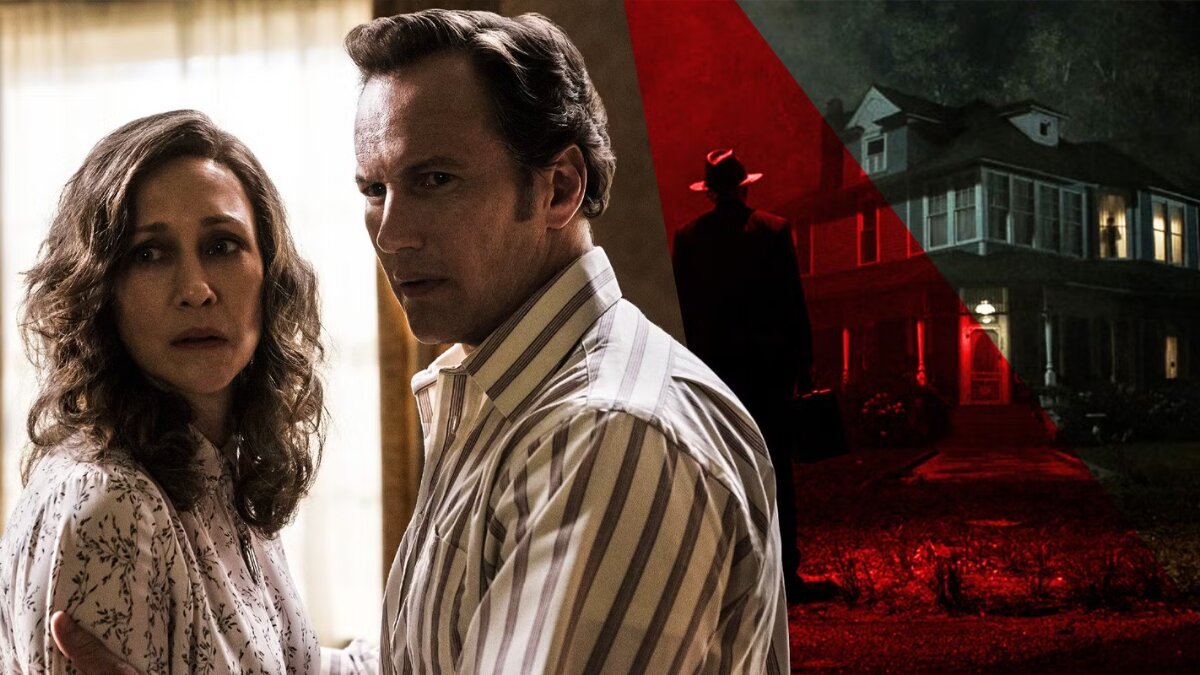The Conjuring: Last Rites was never just about demons—it was about saying goodbye. Ed and Lorraine Warren, as portrayed by Patrick Wilson and Vera Farmiga, have been the heart of this billion-dollar horror franchise for over a decade. They’ve faced every manifestation of evil, from cursed dolls to vengeful nuns. But the final film, cloaked in Vatican mystery and spiritual dread, veers into far more personal territory. It isn’t about one last exorcism—it’s about what their story means after the haunting ends.
The closing scenes of Last Rites may seem quiet compared to the dramatic showdowns the franchise is known for. Yet those final minutes carry heavy implications—about who the Warrens were, what they stood for, and how their story will be remembered. In a cinematic world built on fear, the conclusion instead offers a meditation on legacy, truth, and sacrifice.
This deep dive unpacks the symbolic and emotional weight of the ending, exploring how Last Rites redefines the Warrens’ role—not just as ghost hunters, but as moral anchors in a genre often more obsessed with spectacle than soul.
The Final Scene: A Quiet Victory
In stark contrast to previous entries, Last Rites ends not with a battle, but with a choice. After confronting a centuries-old demonic force beneath the Vatican, Lorraine is offered a vision: a world where evil is endless, and their sacrifices have changed nothing. It’s psychological warfare, not physical danger. The demon seeks to break her spirit, not her body.
But Lorraine chooses faith—not blind religious doctrine, but belief in humanity, love, and purpose. This subtle decision, rendered through silence and light rather than gore and screams, is a defining moment in the series. It reframes the Warrens as symbols of conviction, rather than just spiritual detectives.
In their final moments on screen, Ed and Lorraine are no longer racing against time to save others. Instead, they reflect, rest, and share a rare, quiet day together. No tape recorders. No haunted trinkets. Just peace. The message is clear: the war is over, but the legacy lives on.
The Implication: The Warrens Are Done—But Their Work Isn’t
By ending on this contemplative note, Last Rites signals that the Warrens’ direct involvement in the supernatural world has come to a close. Their home—a constant backdrop throughout the series—is now more a museum of memory than a hub of horror.
But the movie doesn’t close the door on future stories. Quite the opposite. We see subtle hints that their research, case files, and protégés will continue their work. Judy Warren, their daughter, is referenced multiple times, and a Vatican priest appears to take interest in their archives. These narrative seeds imply a thematic continuation: the values the Warrens stood for will guide the next generation.
Their legacy, then, is not in the ghosts they banished—but in the people they inspired.
The Thematic Payoff: Truth, Faith, and Duality
From the beginning, The Conjuring movies have wrestled with belief systems—what is truth? What does faith protect you from, and what does it blind you to?
Last Rites leans deeper into this than ever before. The Vatican’s portrayal is not unilaterally heroic. The demon’s origin is tied to corruption within the Church, suggesting that evil doesn’t always arrive wearing a monster’s face—it sometimes wears a collar. This adds complexity to the Warrens’ mission. They weren’t just fighting supernatural evil—they were navigating flawed human institutions, driven by their own moral compass.
The ending underscores this moral grayness. Ed and Lorraine’s faith isn’t portrayed as unthinking devotion, but personal conviction. Their ability to love, to sacrifice, and to believe in good even when surrounded by horror—that’s what the franchise ultimately honors.
Their real victory isn’t defeating a demon. It’s not losing themselves to the darkness they fought.
The Franchise’s Message: Legacy Over Lore
Last Rites quietly reframes the entire Conjuring Universe. It isn’t just a horror anthology—it’s a love story, a spiritual fable, and a cautionary tale. The ending tells us that what we leave behind matters more than what we defeat. That the people who fight in the shadows often do so without thanks, and sometimes without victory.
But the Warrens endure. Not as saviors. Not as saints. But as people who chose to believe that evil could be confronted—not with power, but with purpose.
It’s a bold ending for a horror franchise. Instead of a last scare, we get a lingering echo: what will you do with the truth?
Final Thoughts
The Conjuring: Last Rites closes the door on Ed and Lorraine’s cinematic journey, but it leaves windows open. Not just for more stories in the universe—but for reflection. Horror films rarely end with stillness. This one does. And in that silence, it asks something powerful of its viewers: What do you believe in?
If you were expecting a bombastic climax, you may have missed the point. The legacy of the Warrens isn’t built on exorcisms or haunted dolls—it’s built on endurance. And in that sense, Last Rites is not just a goodbye. It’s a prayer answered.


